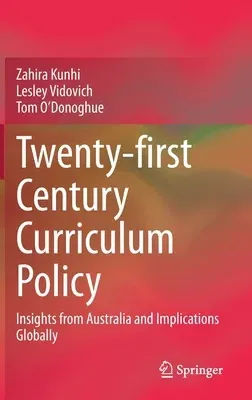Zahira Kunhi
(Author)Twenty-First Century Curriculum Policy: Insights from Australia and Implications Globally (2020)Hardcover - 2020, 3 February 2021

Qty
1
Turbo
Ships in 2 - 3 days
In Stock
Free Delivery
Cash on Delivery
15 Days
Free Returns
Secure Checkout

Print Length
181 pages
Language
English
Publisher
Springer
Date Published
3 Feb 2021
ISBN-10
3030614549
ISBN-13
9783030614546
Description
Product Details
Book Edition:
2020
Book Format:
Hardcover
Country of Origin:
NL
Date Published:
3 February 2021
Dimensions:
23.39 x
15.6 x
1.27 cm
ISBN-10:
3030614549
ISBN-13:
9783030614546
Language:
English
Location:
Cham
Pages:
181
Publisher:
Weight:
449.06 gm